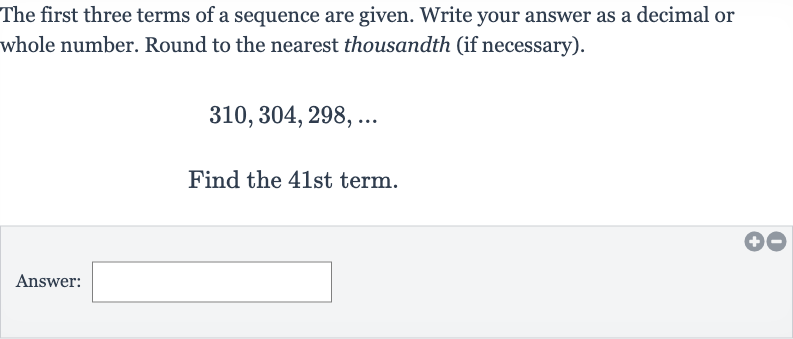AI tutor
Welcome to Bytelearn!
Let’s check out your problem:

The first three terms of a sequence are given. Write your answer as a decimal or whole number. Round to the nearest thousandth (if necessary).Find the st term.Answer:
Full solution
Q. The first three terms of a sequence are given. Write your answer as a decimal or whole number. Round to the nearest thousandth (if necessary).Find the st term.Answer:
- Determine common difference: First, we need to determine the common difference of the sequence by subtracting any term from the previous term.Common difference =
- Calculate common difference: Now, let's calculate the common difference.Common difference =
- Use nth term formula: Next, we use the formula for the nth term of an arithmetic sequence, which is:nth term = first term + We want to find the term, so .
- Substitute values: Let's substitute the values into the formula to find the term. term =
- Calculate inside parentheses: Now, we calculate the term inside the parentheses and then multiply by the common difference. term =
- Perform multiplication: Next, we perform the multiplication. term =
- Add numbers: Finally, we add the numbers to find the term. term
